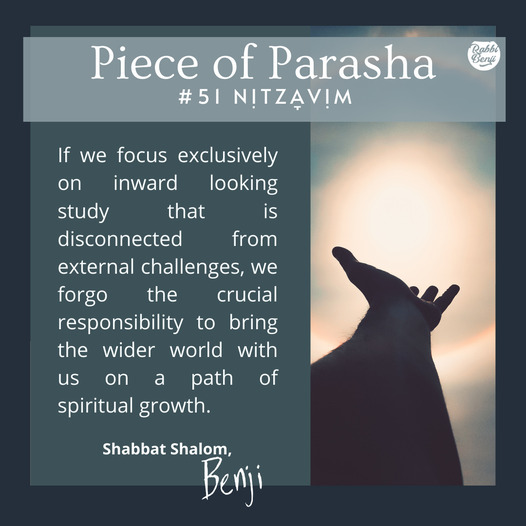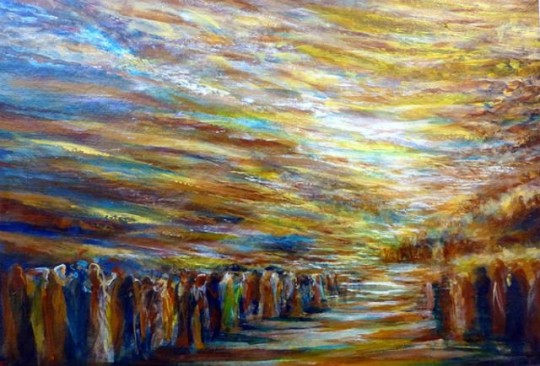#nitzavim
Text
tonight in torah study, we talked about blessings and curses, unexpected songs and poems, and have a surprise guest appearance by Genesis 4:15
4 notes
·
View notes
Text
Weekly Thought - Nitzavim
Here's how we should think about caring for another.
Rabbi Benji
6 notes
·
View notes
Photo

He is near to those who call to him, who call to him with sincerity. Psalm 145:18 #faith #call #music #phone #nitzavim #hope #sundays #todayspsalm #instagood #passion #christ #believe #inspiration #truth #gospel #success #photography #phonecall #joy #follow #spirit #instagram #prayer #nature #motivation #art #leadership #holy #ministry #holyspirit @heartsmate https://www.instagram.com/p/CgXeKM0vP38/?igshid=NGJjMDIxMWI=
#faith#call#music#phone#nitzavim#hope#sundays#todayspsalm#instagood#passion#christ#believe#inspiration#truth#gospel#success#photography#phonecall#joy#follow#spirit#instagram#prayer#nature#motivation#art#leadership#holy#ministry#holyspirit
0 notes
Text

Parashat Nitzavim-Vayeilech
(You Are Standing-And He Went)
NEXT READING
September 09, 2023
Elul 23, 5783
TORAH READING
Deuteronomy 29:9 - 31:30
In the Torah portion Nitzavim, Moses describes the Covenant between God and the Israelites, urging the Israelites to uphold the Covenant and honor the Torah so that they may be rewarded with life in the Land of Israel. In Vayeilech, Moses concludes his speech to the Israelites, blesses Joshua, and instructs the community to gather every seven years to read publicly from the Torah. God predicts the eventual straying of the Israelites.
FULL SUMMARY FOR NITZAVIM
FULL SUMMARY FOR VAYEILECH
7 notes
·
View notes
Text
4th portion-Parshah Nitzavim(english)

4th Portion: (Deuteronomy) 30:1-6
1And it will be, when all these things come upon you the blessing and the curse which I have set before you that you will consider in your heart, among all the nations where the Lord your God has banished you,
2and you will return to the Lord, your God, with all your heart and with all your soul, and you will listen to His voice according to all that I am commanding you this day you and your children,
3then, the Lord, your God, will bring back your exiles, and He will have mercy upon you. He will once again gather you from all the nations, where the Lord, your God, had dispersed you.
4Even if your exiles are at the end of the heavens, the Lord, your God, will gather you from there, and He will take you from there.
5And the Lord, your God, will bring you to the land which your forefathers possessed, and you [too] will take possession of it, and He will do good to you, and He will make you more numerous than your forefathers.
6And the Lord, your God, will circumcise your heart and the heart of your offspring, [so that you may] love the Lord your God with all your heart and with all your soul, for the sake of your life.
#haveablessedday#jumblr#simchat torah#lord have mercy#torah study#parasha ha shavua#weekly parasha#have a nice week#torah#parasha nitzavim#keeping commandments#keep the faith#biblia#bible study#torah portion#torah lovers#welovetorah#welovehashem
3 notes
·
View notes
Text
Rabbi Lord Jonathan Sacks zt"l - Why Judaism? - NITZAVIM • 5775, 5782
Rabbi Lord Jonathan Sacks zt”l – Why Judaism? – NITZAVIM • 5775, 5782
This week’s parsha raises a question that goes to the heart of Judaism, but which was not asked for many centuries until raised by a great Spanish scholar of the fifteenth century, Rabbi Isaac Arama. Moses is almost at the end of his life. The people are about to cross the Jordan and enter the Promised Land. Moses knows he must do one thing more before he dies. He must renew the covenant between…

View On WordPress
0 notes
Text
Rare Hybrid Eclipse April 20, 2023, and April 23, 23 AD. What do they mean?
Rare Hybrid Eclipse April 20, 2023, and April 23, 23 AD. What do they mean?
Twenty-Three Hybrid Eclipse 0 to 100 AD
Hebrew Gregorian Dating
Hybrids speak on The Rosh Chodesh, a Sabbath!
They bring in the next month at the renewing of the moon.
Solar ‘hybrids’ and ‘hybrid’ humans help us recognize darkness.
Renewed creatures seeing darkness should repent.
Hybrid men are raised up to give light.
The fewer ‘hybrids’ the less recognition of darkness.
Read this…

View On WordPress
#Eclipse double trouble#genesis 25 toldot#Hybrid Eclipse 23 AD#Hybrid eclipse April 2023#Israel teaching Torah#Jesus Hybrid man#King Saudi oil 1945#List of Hybrids since year 1#Nitzavim torah portion#What is Tetrad#Why FDRS died in 1945
1 note
·
View note
Text
Each one of us is part of the collective effort of humanity to shift the world, from the beginning of time until the Gemar HaTikun, the End of the Correction.
#promise#jobsearch#kabbalah#balance#Mindfulness#mindfulness practice#self awareness#gratitude#healing#positivevibes#rosh hashanah
2 notes
·
View notes
Text
This Week's Torah Portion with Rabbi Greg
0 notes
Text
Nitzavim-Vayelech
וְאָמַ֞ר הַדּ֣וֹר הָאַֽחֲר֗וֹן בְּנֵיכֶם֙ אֲשֶׁ֤ר יָק֨וּמוּ֙ מאחריכם וְהַ֨נָּכְרִ֔י אֲשֶׁ֥ר יָבֹ֖א מֵאֶרץ רחוֹקָה ו֠רָא֠וּ אֶת־מַכּ֞וֹת הָאָ֤רֶץ הַהִוא֙ ואת־תַּ֣חלֻאֶיהָ אֲשֶׁר־חִלָּ֥ה יְהֹוָ֖ה בּה: גָּפְרִית ומֶ֘לַח֘ שְׂרֵפָ֣ה כָל־אַרְצָהּ לא תִזָּרַע֙ וְלא תַצְמִחַ וְלֹא־יַֽעֲלֶ֥ה בה כָל־עֵ֑שֶׂב כְּמַהפֵּכַ֞ת סדֹ֤ם וַֽעֲמֹרה אדמָ֣ה וּצְבוֹיִ֔ם אֲשׁר הָפַ֣ךְ יְהֹוָ֔ה בּאפוֹ וּבַֽחֲמָתֽוֹ:
And a later generation, your descendants, who will rise after you, along with the foreigner who comes from a distant land, will say, upon seeing the plagues of that land and the diseases with which the Lord struck it: Sulfur and salt have burned up its entire land! It cannot be sown, nor can it grow [anything], not [even] any grass will sprout upon it. It is like the overturning of Sodom, Gemorrah, Admah and Zeboiim, which the Lord overturned in His fury and in His rage. (Devarim 29:21-22)

0 notes
Text

When it comes to knowledge and wisdom, sharing is caring…as we see in this week’s #PieceofParasha on Nitzavim.
More: Here
Rabbi Benji
3 notes
·
View notes
Text

Parenting...it's a whole thing, especially when they already know more than you ever will. (Check out the full text of this poem here: https://jewishpoetry.net/the-things-we-know-a-poem-for-parsha-nitzavim-aliyah-5/)
1 note
·
View note
Text
Parashat Nitzavim-Vayeilech
by Meir Anolick
Written for Shabbat Parashat Nitzavim-Vayeilech, כה באלול תשע”ד:
Towards the end of Nitzavim, the first of the two Parshiyot for this week, we have the well-known dictum of Moshe Rabbeinu (30:19): “I have placed life and death before you, blessing and curse, and you shall choose life”. Moshe Rabbeinu is quite explicit in his exhortations that straying from God is the path of death, whereas cleaving to Hashem and his Mitzvot is the path of life.
I’ve heard many times people who like to say that we are dying from the day we are born, since every day we are one day closer to death. This attitude is no joke, but rather is usually indicative of a cynical outlook, in contrast to the teachings of Chazal. In truth, this is not the view of Judaism. Chazal teach us that we are our souls, and that our bodies, our physical selves, are merely vessels to carry that soul. Yes it has great significance, but the essence of a person is his soul, not his body. When a body perishes, the soul lives on… or at least, that’s the plan, and that is the key to lesson that Moshe is teaching us here.
Following in the ways of Hashem is the key to life. As Moshe says, “life and the good” (30:15), that which is good in the eyes of Hashem is synonymous with life.
On the other hand, Moshe also warns us about “the death and the evil” (ibid.), straying from the ways of Hashem is synonymous with death. Therefore, so long as a person is striving to connect himself with Hashem by learning Torah, performing Mitzvot faithfully, and working constantly to improve his traits, he is one who is alive. When such a person reaches the end of their physical existence, what waits for them is not death, for they have Torah in their hands, and that grants them life eternal. On the other hand, people who spend their lives on frivolity, who pursue material wealth and physical pleasures, the people that modern society claim are “alive”, they are the ones who are dead. With no connection to Hashem, a person severs himself from the source of life, and even before his physical body perishes, he is already dead.
Though I myself certainly am not perfect in this area, but something important to think about in all our actions in life is, “How does Hashem view this?” We must remember that when our time in the physical world ends, we must give an accounting for all of our deeds in this world. That means that when we do something we know is wrong, but our inner voice is trying to come up with ridiculous justifications for why we should continue, we need to stop and ask ourselves, “How will I explain this to Hashem?”
There have been many times I have found myself trying to point out to someone else that some action they are doing is wrong, often times the topic is stealing of movies and other digital content through illegal downloading, and they give me all these ludicrous reasons for why it’s okay for them to continue. All the while, the only thought going through my mind is, “And what will you say when you stand before Hashem and he asks you why you did this?” When someone gives us rebuke, whether they did it correctly or incorrectly, it is purely self-destructive for us to argue against them1, rather we should start preparing our defense for when we stand before the Heavenly Court, where we no longer have the opportunity to right the wrongs we have committed, and where our lies and faults are laid bare.
Rosh Hashanah and Yom Kippur are coming soon, and we all have committed many sins. Will we readily admit to them before The Holy One Blessed Be He, and repent for what we’ve done wrong, or will we continue to sweep our sins under the rug and delude ourselves into thinking we will never be taken to task for them?
That is the choice that Moshe Rabbeinu placed before us, the choice between life and death. Shabbat Shalom.
1 In Hilchot T’shuvah (4:2), Rambam teaches that refusing to listen to rebuke prevents a person from doing T’shuvah, since refusal to admit you have sinned precludes sincere repentance.
6 notes
·
View notes
Text
4ta aliya-Parasha Nitzavim(español)

4ta sección: (Deuteronomio) 30:1-6
1 Llegará un tiempo en que experimentes todas las palabras de bendición y maldición que te he presentado. Allí, entre las naciones a las cuales Dios te haya desterrado, reflexionarás sobre la situación.
2Retornarás entonces a Dios tu Señor, y Lo obedecerás, haciendo todo lo que te ordeno hoy. Tú y tus hijos [se arrepentirán] con todo el corazón y con toda el alma.
3Entonces Dios traerá de vuelta tus remanentes y tendrá misericordia de ti. Dios tu Señor una vez más te reunirá de entre todas las naciones donde Él te desparramó.
4Incluso si tu diáspora está en los extremos de los cielos, Dios tu Señor te recogerá de allí y te tomará de vuelta.
5Entonces Dios tu Señor te traerá a la tierra que tus ancestros ocuparon, y tú también la ocuparás. Dios será bueno contigo y te hará prosperar aun más que tus ancestros.
6Dios quitará las barreras de tu corazón y de los corazones de tus descendientes, para que ames a Dios tu Señor con todo tu corazón y alma. De este modo, sobrevivirás.
#parasha de la semana#torah#jumblr#biblia#torah study#parasha ha shavua#parasha nitzavim#gracias hashem#elohim#simchat torah#childrens of israel
2 notes
·
View notes
Text
Jonathan Sacks z"l - To Renew our Days NITZAVIM, VAYELECH
Image Credit: Yoram Raanan http://www.yoramraanan.com http://www.facebook.com/RaananArt
Jonathan Sacks z”l – To Renew our Days NITZAVIM, VAYELECH
The moment had come. Moses was about to die. He had seen his sister Miriam and brother Aaron pre-decease him. He had prayed to God – not to live forever, not even to live longer, but simply, “Let me go over and see the good land beyond the…

View On WordPress
0 notes
Video
vimeo
5783-Vayeilech-Nitzavim from Gateways Organization on Vimeo.
0 notes